This was a hard list to make. The 40s are my absolute favorite decade in film, and there was no way I could only list five (like our previous post; Quarantined? I Gotchu – Here Are My Five Favourite Films From The 1930s). So, with great deliberation aided with the process of elimination, I present TEN (whew!) films from the 1940s!
(DISCLAIMER: while films like Breakfast at Tiffany’s, The Sound of Music and Casablanca are indeed iconic, I am concentrating on films that are maybe not as well known, and are typically not included in mainstream lists. Enjoy!)
The Philadelphia Story (1940) dir. George Cukor
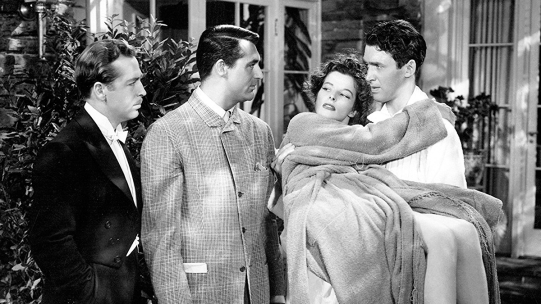
Starring three of the biggest stars of the decade, The Philadelphia Story stars Katharine Hepburn, Cary Grant and James Stewart as socialite Tracy Lord, yacht designer C.K. Dexter and reporter Mike Connor. John Howard and Ruth Hussey act in supporting roles of Tracy’s nouveau riche fiance George Kittredge, and Mike’s fellow reporter Liz Imberie. Mike and Liz are sent from New York City to cover this society wedding, where Tracy’s ex C.K. shows up as well!
This movie is the one I usually recommend to people getting into Old Hollywood. It has comedy, romance and such a fun plot! This movie was also remade in 1956 as High Society, but I’m sorry – the original remains supreme!
Rebecca (1940) dir. Alfred Hitchcock
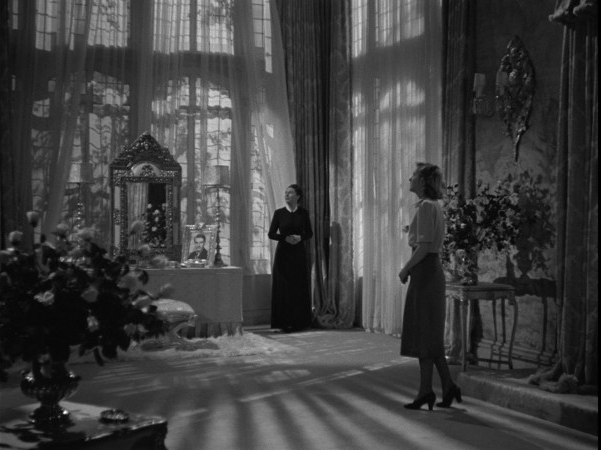
Do you want to watch Joan Fontaine losing her mind in a spooky, deteriorating English mansion? Of course you do! Fontaine stars as the unnamed second Mrs de Winter, married to Laurence Olivier’s Maxim de Winter. They move to the de Winter’s mansion by sea, where the housekeeper, Mrs Danver, has kept the house in pristine condition; going so far to keeping the house exactly as it was during the reign of the last Mrs de Winter – Rebecca.
What is there not to love? Fontaine, Olivier, Hitchcock, the British seaside and mind games- that’s Friday night sorted!
His Girl Friday (1940) dir. Howard Hawks
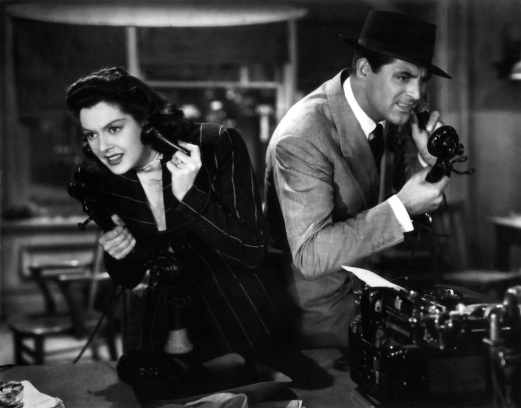
His Girl Friday is a defining screwball comedy. Grant stars with Rosalind Russell (one of the funniest women in comedy) as reporters and divorced couple Walter Burns and Hildy Johnson. Hildy is ready to settle down with her fiance Bruce Baldwin (Ralph Bellamy) when Burns’ assigns Johnson to her last story- a murder.
Funny, funny and funny! A delightful movie showing the comedic talents of both the leads, as well as surprising and refreshing feminist tale. The title is ironic, because Hildy is not Burns’ girl Friday, but his equal: providing an intriguing, fast paced story.
Suspicion (1941) dir. Alfred Hitchcock
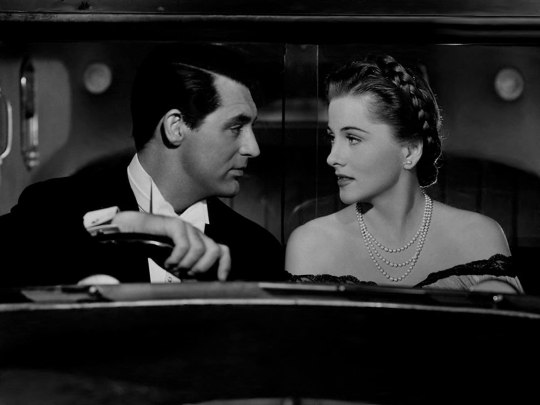
Fontaine and Grant star as the married couple Lina and Johnnie Aysgarth. Lina is a shy, “doudy spinster”, who is wooed by playboy Johnnie into elopying with her. After her marriage, Lina is not sure Johnnie is who she thought he is.
An underrated Hitchcock classic. Fontaine is one of this actresses who looks simply ethereal on celluloid, and it’s so much fun to see the sinister side of the otherwise charming and proper Grant!
(Funfact! Fontaine won Best Actress at the 1942 Oscars, making Suspicion the only Oscar winning performance Hitchcock film.)
Come Live with Me (1941) dir. Clarence Brown
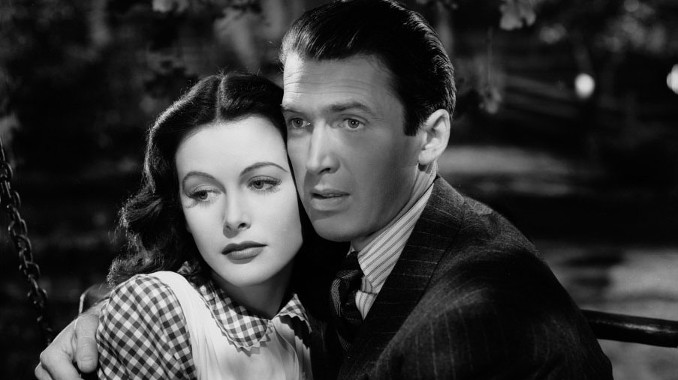
Probably the least known film on the list; Come Live with Me stars Stewart with Hedy Lamarr in the sweetest film I’ve ever seen. Lamarr stars as the beautiful Viennese refugee Johnny Jones, who is looking to enter a marriage of convenience – in a week’s time she must marry an American to save herself from deportation. Unable to marry Barton Kendrick (Ian Hunter) with whom she is having an affair, she starts to look for eligible candidates.
Enter Stewart’s Bill Smith – a down-on-his-luck writer who meets Jones at a diner and agrees to her plan: they only meet once a week when Jones comes to give him his weekly check of $17.80 (around $324.41 today). Smith decides to write about his strange marriage, and starts to develop feelings for his wife.
Very, very cute and very, very sweet, this film concentrates and understands the characters they are portraying, making sure that the viewer understands their motives and desires, and why the ending is what it is.
Mildred Pierce (1945) dir. Michael Curtiz
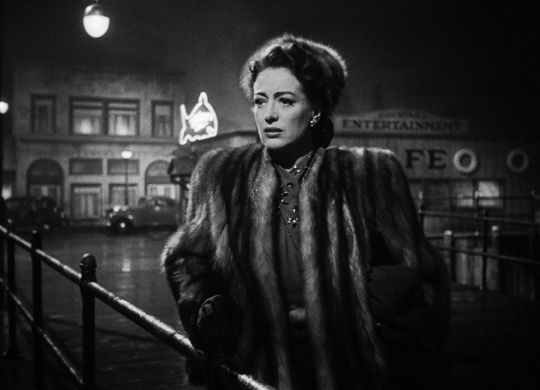
Joan Crawford stars as Mildred Pierce, a single working mother who is struggling to raise her bratty, privileged daughter Veda (Ann Blyth). Veda is ashamed of her working mother, despite the fact that she has build a successful business out of nothing. Veda’s constant desire of more and more push her and her mother into unthinkable situations.
A particularly modern film, Mildred Pierce breaks down the ugly side of mother-daughter relationships, and how far mothers go for their children. Joan Crawford is an absolute star: beautiful and extremely talented, she wonderfully plays a character that is sensitive and strong at the same time. Ann Blyth is equally good as Veda, a character the audience can’t help but hate.
(Fun fact: Crawford made her great comeback from the label “box office poison” in this film.)
The Big Sleep (1946) dir. Howard Hawks
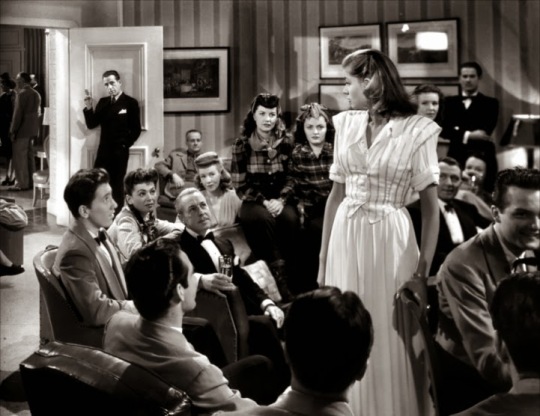
My favourite Bogie and Bacall movie, The Big Sleep stars husband and wife Humphrey Bogart and Lauren Bacall as Detective Philip Marlowe and the rich divorced Mrs. Vivian Rutledge. Marlowe has been hired by Vivian’s father to look into the gambling debts accounted to the his younger daughter Carmen, which Vivian believes is a coverup for bigger criminal activities her father and sister are involved with, which lead her to working with Marlowe.
A classic film of scandal and crime, The Big Sleep is perfect if you love the the Noir way of a trench wearing brooding detective, and his sultry and mysterious partner.
Gentleman’s Agreement (1947) dir. Elia Kazan
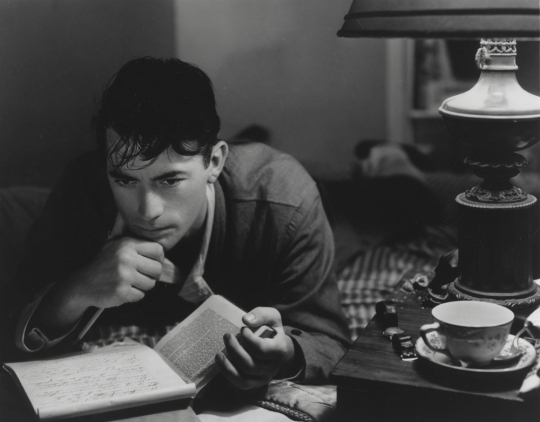
Gregory Peck stars as widowed journalist Philip Schuyler Green, who has moved to New York City with his son Tommy (Dean Stockwell) and mother (Anne Revere). Green meets with magazine publisher John Minify (Albert Dekker), who asks Green to write an article on anti-Semitism. Green decides to go undercover and adopt a Jewish identity (Phil Greenberg), so that he can understand and record his experiences first hand. Dorothy McGuire and John Garfield also star as Kathey Lacey and Dave Goldman.
This film is one that has stayed relevant years after it’s release. The film not only deals with blatant discrimination, but also addresses the subdued, daily discrimination that is felt by all minorities. A perfect example in the film is when (No Spoilers!) someone tells Green how they felt sick listening to a bigoted joke. However, they have no answer when Green asks them what they did about it, leading to the character realizing that their silence is another way of siding with the oppressor.
Rope (1948) dir. Alfred Hitchcock
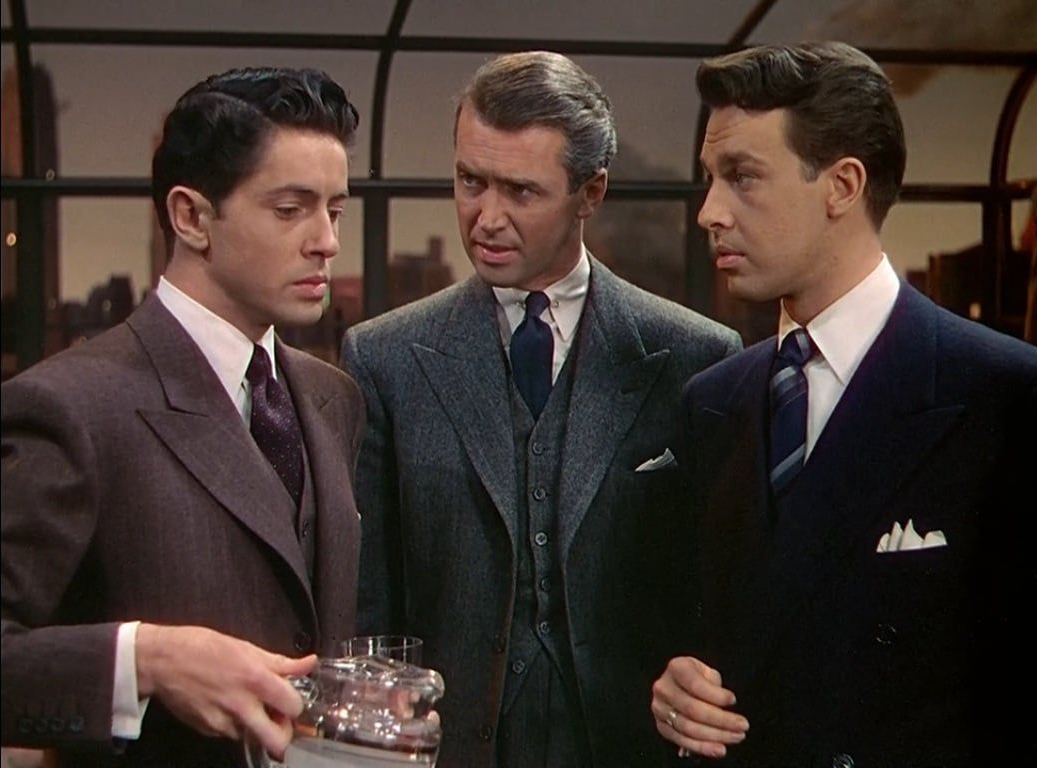
The only technicolour film on the list, Rope is extremely impressive. Not only is it set in real time, it is filmed to appear as a single shot. Because the film was only ten long takes, the cast and crew had to rehearse the scenes perfectly, to make sure that there are no mistakes once the camera is rolling. The walls of the set as well as the cameras had wheels to make sure transitions would be done smoothly.
The film opens up with the murder of David Kentley (Dick Hogan) by his Harvard classmates Brandon Shaw (John Dall) and Phillip Morgan (Farley Granger). After strangling him, they put his body in a chest, and await their entrange of dinner guests: The housekeeper Mrs Wilson (Edith Evanson), David’s father and aunt Mr. Henry Kentley (Sir Cedric Hardwicke) and Mrs. Anita Atwater (Constance Collier), David’s fiance Janet Walker (Joan Chandler) and her ex-beu and David’s close friend Kenneth Lawrence (Douglas Dick), and finally the duo’s prephouse schoolmaster, the publisher Rupert Cadell (James Stewart).
I cannot possibly describe the brilliance of this film without giving anything away. Incredibly integriging and equally horrifying, Rope displays aspects of human nature that is equal parts fascinating and equal parts inconceivable, touching on subjects such as white privilege, class superiority and the concept of general inferiority.
The Heiress (1949) dir. William Wyler
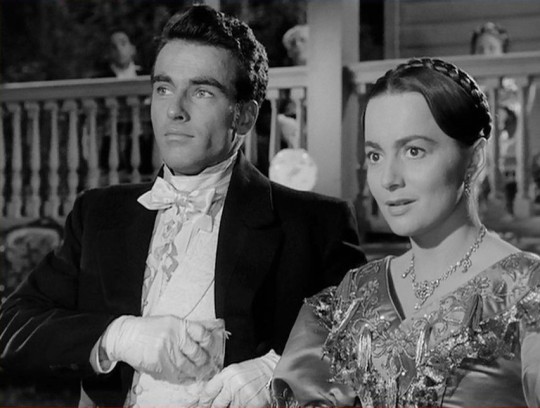
Taking place in 1880, The Heiress stars Olivia de Havilland (who is still with us today at the age of 103!) as Catherine Sloper, the “plain, simple” daughter of the wealthy Dr Sloper. Sloper often brings up the good looks and grace of his late wife, and how Catherine has proved to be a poor substitute for her mother’s beauty. Catherine, who is devoted to her father, is too innocent to understand her mistreatment.
Enter Montgomery Clift’s Morris Townsend, who meets Catherine at a ball and falls in love with her, flourishing her with gifts and flowers. Catherine, who has never received such attention, quickly falls for him and plans on marrying him. Her father, however, is not convinced, and believes Townsend is a fortune hunter taking advantage of his daughter’s naivety.
While the cast is spectacular, it is Olivia de Havilland who carries the picture – her soulful eyes and endearing personality makes the audience invested into her and therefore, the story.
Funfact: by winning an Oscar for her performance, de Havilland and her sister Joan Fontaine made history by becoming the only siblings to have won the prestigious award.
*
And that is it for our films of the 1940s! Is there a film from this decade you love? Or maybe you have seen one from this list? Or are now planning on watching one? And how cool is our Featured Image, showcasing MGM’s stars at it’s birthday celebrations in 1943? How many can you recognize? Let us know the comments below!
(And don’t forget to sign up for email notifications, that way you’ll know when our 1950s list goes up too!)